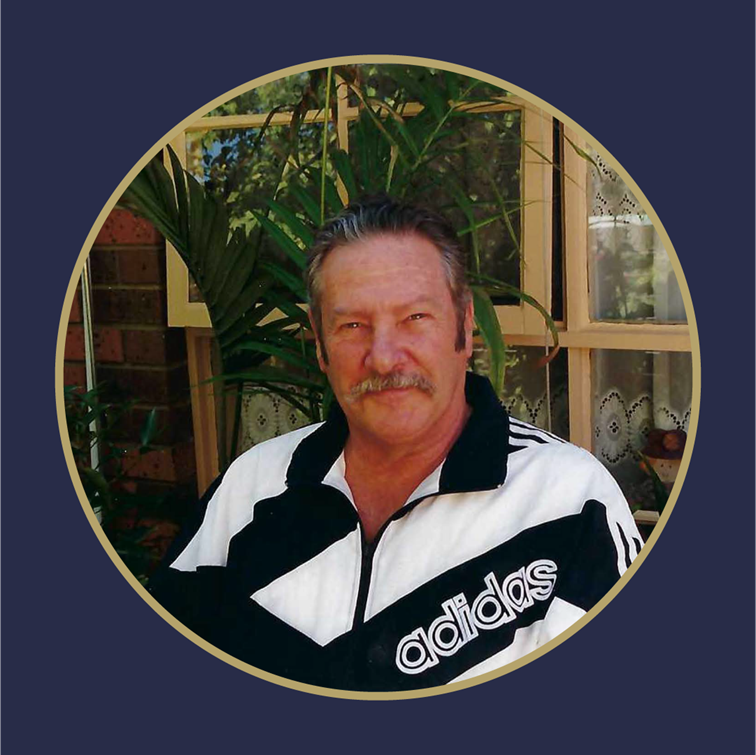Celebrating 100 years: John's story
To acknowledge 100 years of CSC, we’re talking to our customers to capture their stories spanning fascinating careers and long-time relationships. Meet John Sydenham—senior telegraphist, Australia Post Traffic Manager, and survivor of polio and bowel cancer—as he reflects on his early working life of delivering life-changing messages, health challenges, and how CSC continues to provide for a comfortable retirement.
01 Dec 2022
The glamorous world of telegraphy and Morse code required impressive technological and intellectual expertise. Once the harbinger of bad news during wartime and good news during celebrations, the introduction of telegraphy revolutionised long-distance communication.
John Sydenham joined this prestigious profession in 1948 as a young telegraph messenger at Adelaide’s Brighton Post Office. He became a contributor to the Commonwealth Superannuation Fund shortly afterwards.
“I learnt the Morse code, which was essential in those days if you wanted any type of promotion in the Postmasters General Department (PMG).
I did a nine month full-time training course learning Morse and machine telegraphy.”
But not long after commencing work, John became infected with polio. The highly contagious epidemic sweeping across Australia forced John to isolate at the Northfield Infectious Diseases Hospital for 16 days.
“I had just started work and underwent a probationary period and then I got polio. The commencement of contributions to my super was delayed for some months until my health was restored.
However, I did receive two substantial payments in my 20s and 30s. The government of the day decided that the contributions by the members of the superannuation fund were in excess of requirements.
As a result, I received two substantial refunds, which as a young married man with two kids was most welcome!”
John worked in the Chief Telegraph Office in Adelaide before transferring to Alice Springs for three years and then Darwin for one year, before finally returning to Adelaide in late 1956.
“The Australian Overland Telegraph Line was constructed between Adelaide and Darwin in 1872. It joined an undersea cable to London and was Australia’s first rapid communication link with the rest of the world. The old telegraph office in Alice Springs—the half-way point on the Overland Telegraph Line—shifted to the main town in 1932. This is where I worked in the early 1950s.”
This year is the 150th anniversary of the completion of the line.
As John explains, the significance of the Alice Springs office went beyond its telegraphy and postal responsibilities.
“During World War II, it was a staging camp for the troops—both allied and Australian—moving to and from Adelaide and Darwin. The railway line between Alice Springs and Darwin wasn't built, until, well, pretty close to the year 2000, I think.
And it was important for the cattle stations to get their supplies, and also for the mines at Tennant Creek. They would truck copper ore to Alice Springs from Tennant Creek where it would be carried by train to Adelaide. And they would send cattle to market from Alice Springs to Adelaide.”
A member of the South Australian and Northern Territory's Morsecodian Fraternity, John credits his early mentor—Perce Highett, a Postal Clerk at the Brighton Post Office—for encouraging him to learn Morse and kick off a most interesting and rewarding career in telegraphy.
“I'll give you an example. When atom bombs and rockets were being tested by the British at Maralinga and Woomera, our men were there to transmit the results by telegraph.
We would go to the test cricket. We’d send progress of the test matches to the newspapers in Australia and around the world.
Also the Davis Cup, we would go there and telegraph that. Racecourses were staffed by PMG telegraphists who would transmit messages about the races and whatever other messages were lodged for transmission.
Information about births, deaths and marriages were frequently sent by telegraph. The business community was a big user of the telegraph system—especially the stock exchanges, airlines and travel organisations.
Telegraph was the major means of communication until about 1960 because telephones were few and far between and long distance calls were expensive."
While his career took him to places he may not have otherwise experienced, John is grateful for the travel opportunities that his superannuation has afforded him.
“Super gave me a steady income to travel extensively throughout Australia.
I've been to the Daintree, the Gulf of Carpentaria, the northern areas of Western Australia, Darwin, Katherine, Tennant Creek, Alice Springs. And of course, along the Queensland and New South Wales coastlines."
John is grateful for his comfortable retirement in this current climate of financial uncertainty.
“The last time I was at the supermarket, the lady at the checkout said to me that she sees so many sad situations that it makes her want to cry.
All the people who really can't afford what they'd like to be buying. And that sort of hit me a bit.
My super has allowed me to live a fairly comfortable life because I get a good fortnightly payment. Well, when you can pay for things because you get a decent superannuation, you're smiling.”

“Well, of course it had a reputation for being the best fund in the lot, the Commonwealth Superannuation Fund. And I'd have to agree with that.”
John Sydenham, CSC customer since 1948
